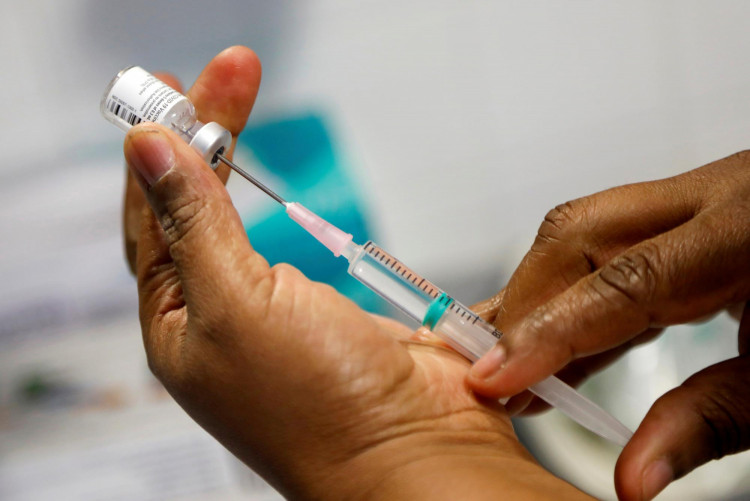On Sunday, the Omicron coronavirus variant expanded throughout the world, with new cases discovered in Australia, Denmark, and the Netherlands, despite the fact that more countries implemented travel restrictions in an attempt to isolate themselves.
According to the World Health Organization, it is unknown whether Omicron is more transmissible than other genotypes or produces more severe disease.
As more cases are detected and countries worldwide prepare to respond to Omicron, the United Kingdom announced that an emergency meeting of the Group of Seven (G7) health ministers will be convened on Monday.
Additionally, it announced new domestic public health regulations beginning this week that require face coverings in stores and on public transportation.
Omicron was discovered for the first time by scientists in South Africa on Friday, who expressed concern about the organism's extraordinarily fast mutation rate. Since then, at least a dozen additional instances of the new strain have been confirmed, with numerous others reporting suspicious cases.
"Preliminary statistics indicate that hospitalization rates are growing in South Africa, although this could be attributable to an increase in the overall number of individuals becoming ill, rather than to a specific infection," the WHO stated.
Furthermore, the WHO stated that determining the severity of Omicron will take days to "several weeks."
Dutch police announced Sunday that at least 13 persons tested positive for the virus at Amsterdam Schipol Airport following a flight from South Africa.
In a statement, the Netherlands' National Institute for Public Health and the Environment (RIVM) said the variant was discovered during the sequencing of 61 positive COVID-19 samples obtained at the airport on Friday.
RIVM added that it is "conceivable" that the new variant will be discovered in more test samples.
Dutch military police said they apprehended a married couple who attempted to flee the country after testing positive for COVID-19 at a hotel.
The WHO designated Omicron as a "variant of concern" last week, indicating that it may be more contagious than earlier versions.
Apart from South Africa, the variant has also been identified in Botswana, Canada, Belgium, the United Kingdom, Israel, Germany, Italy, the Czech Republic, and Hong Kong.
Meanwhile, U.S. President Biden will provide an update on the country's response to the variant on Monday, the White House announced Sunday evening following his meeting with Dr. Collins and Dr. Anthony S. Fauci, the U.S.' top infectious disease specialist.
Scientists say much remains unclear about the Omicron version, which contains an alarming number of previously unseen alterations.






